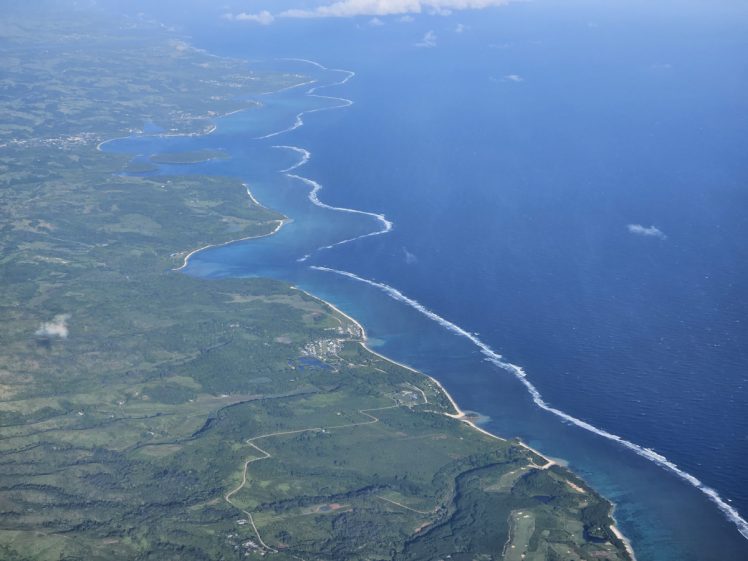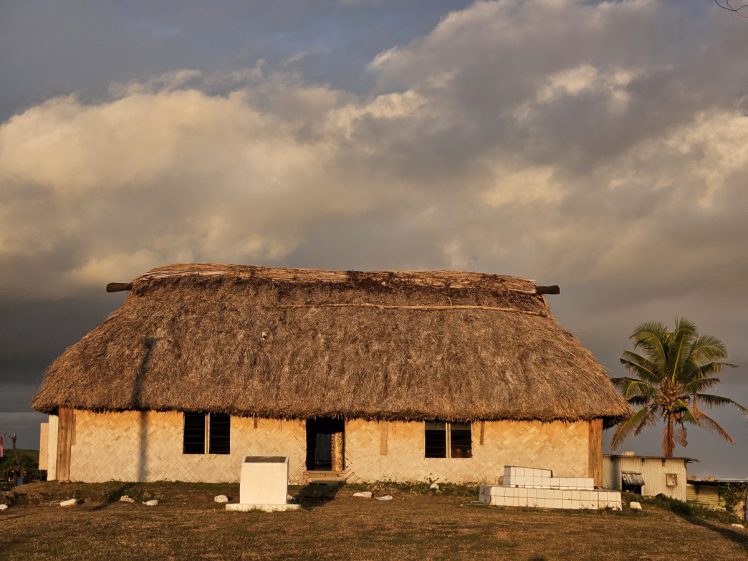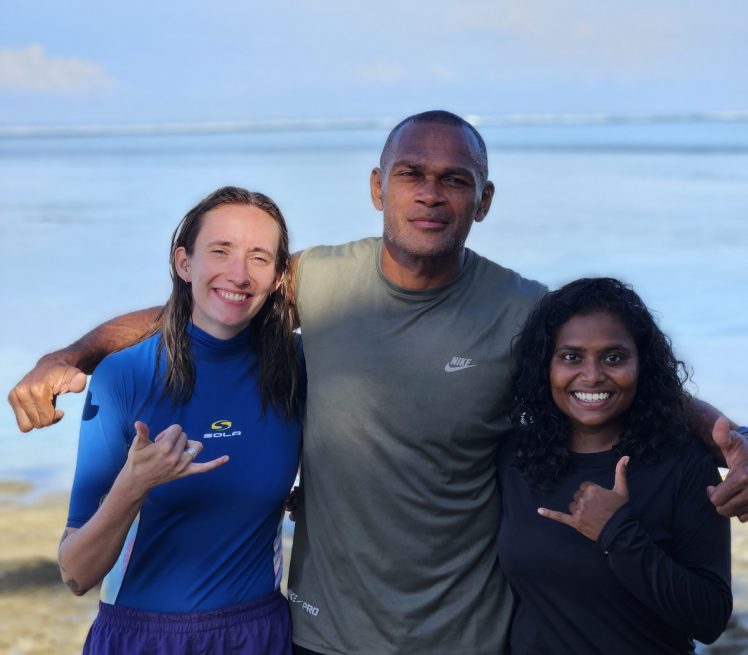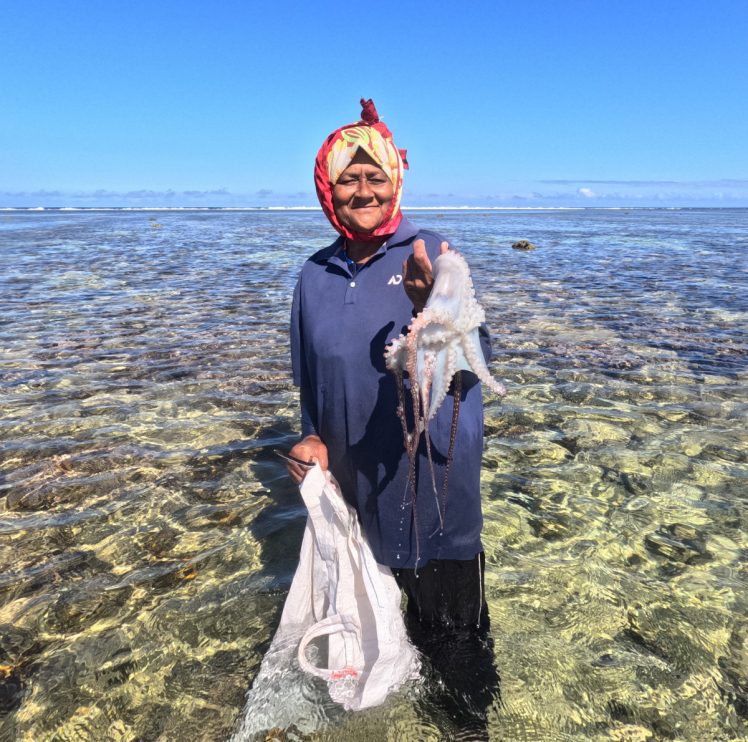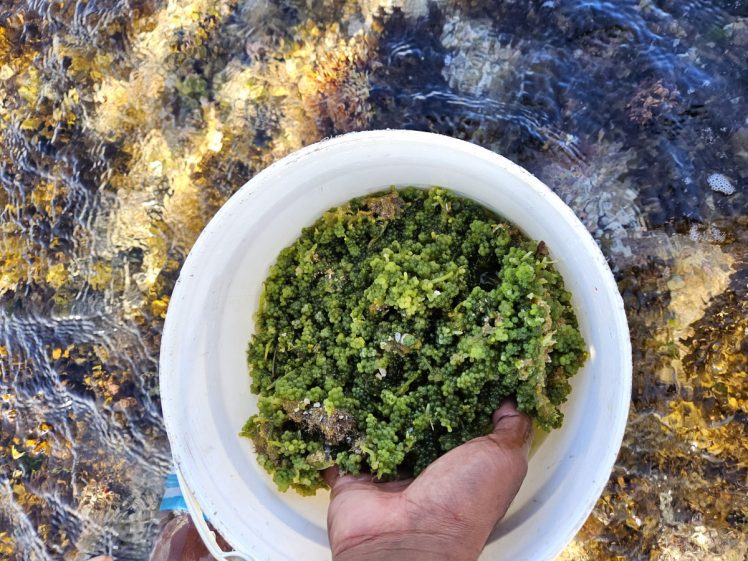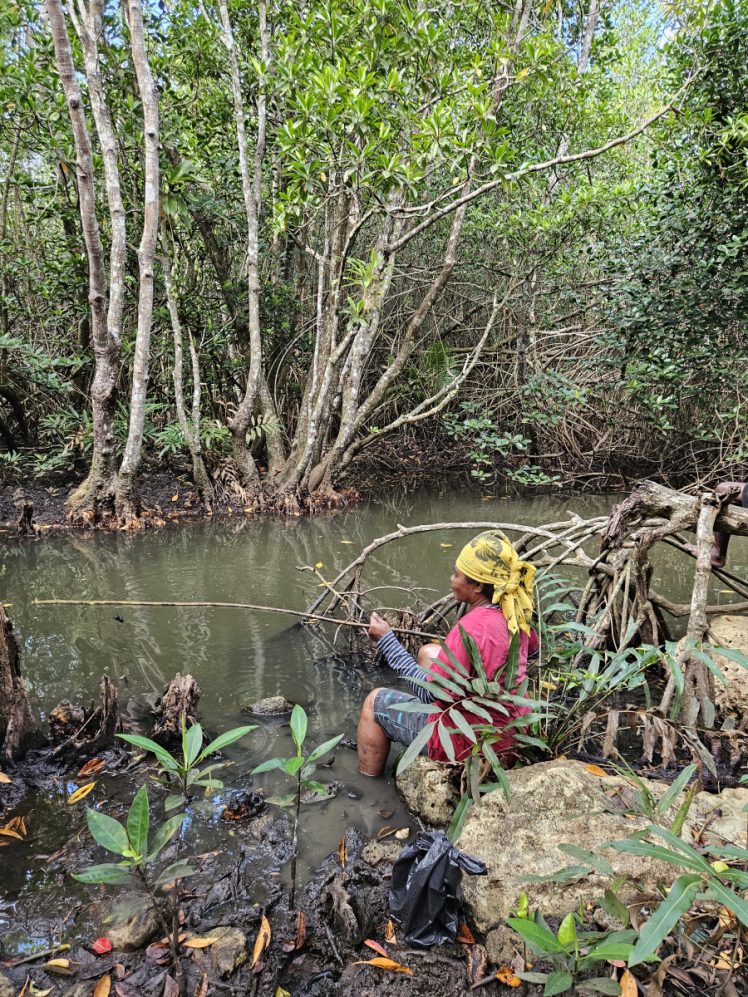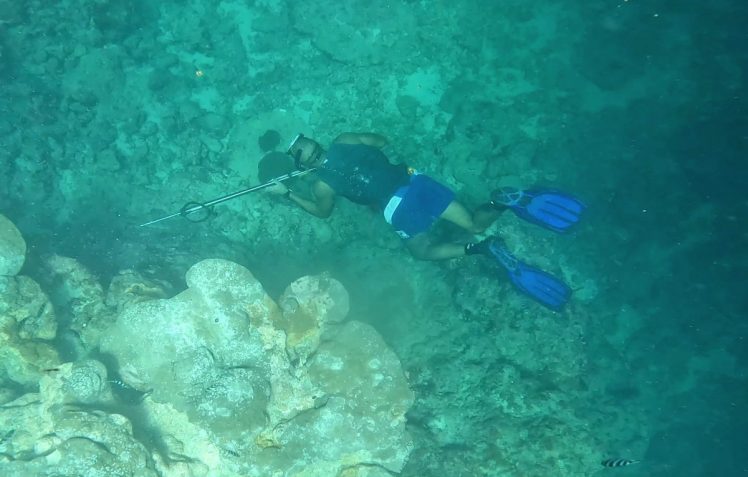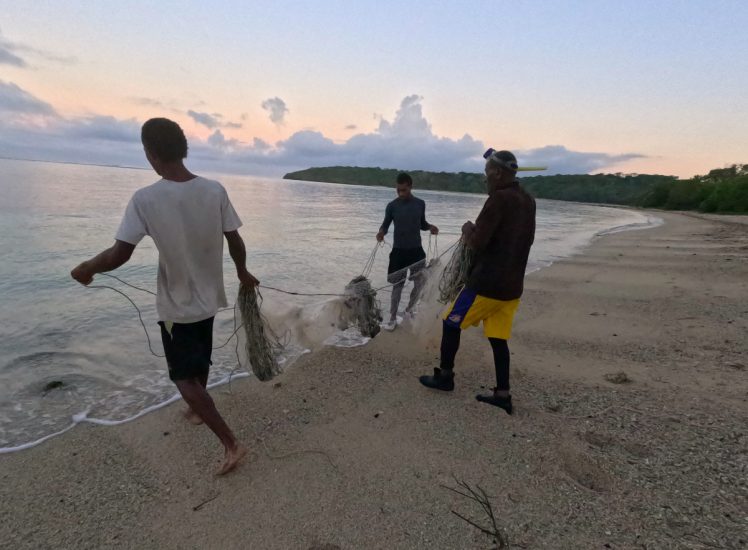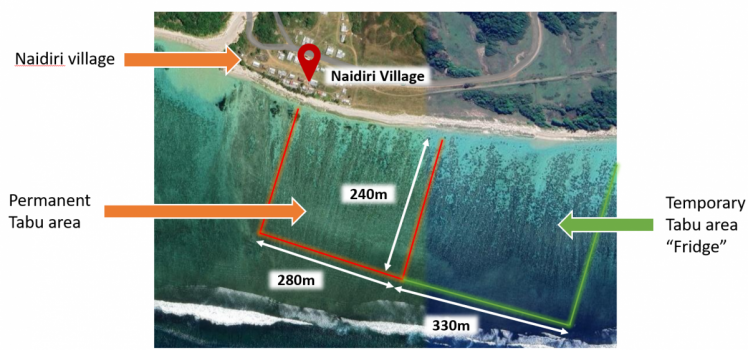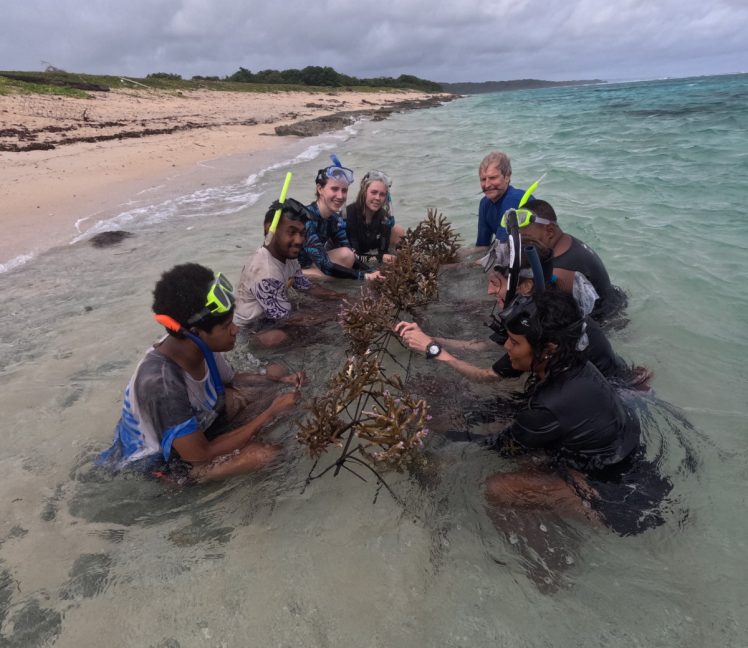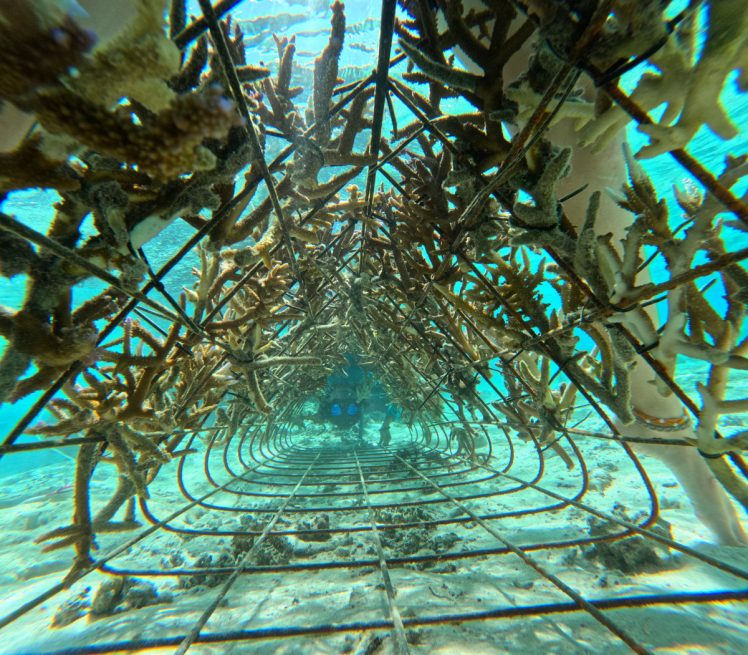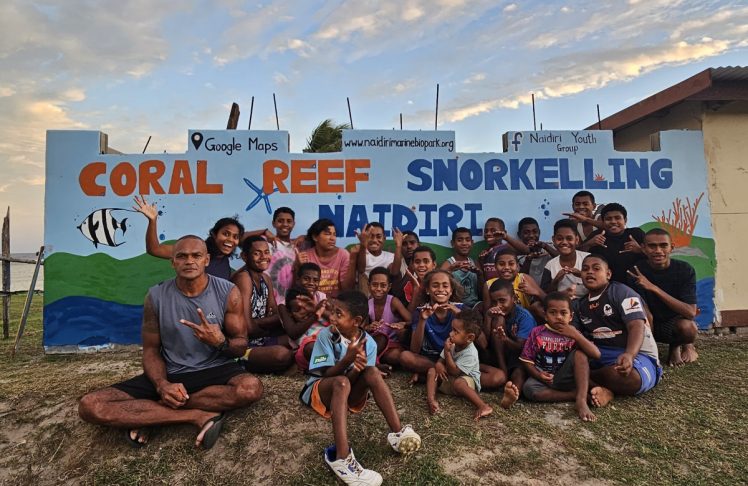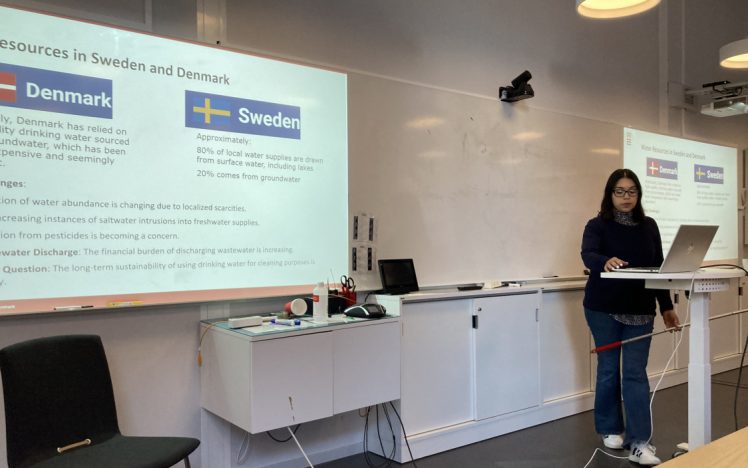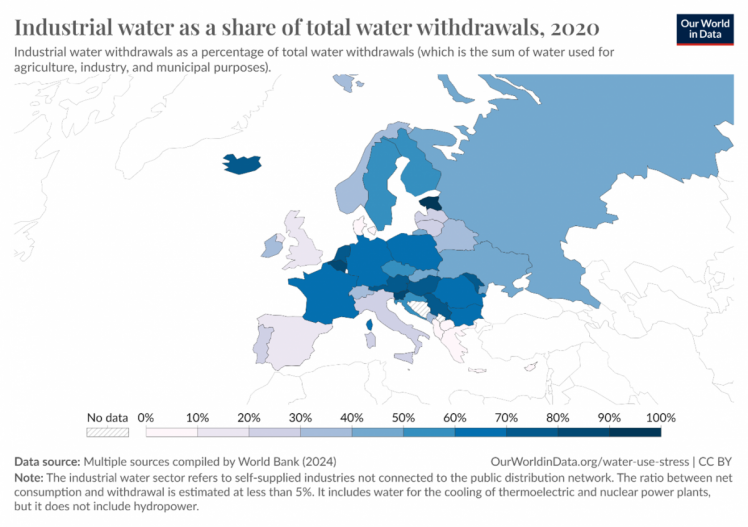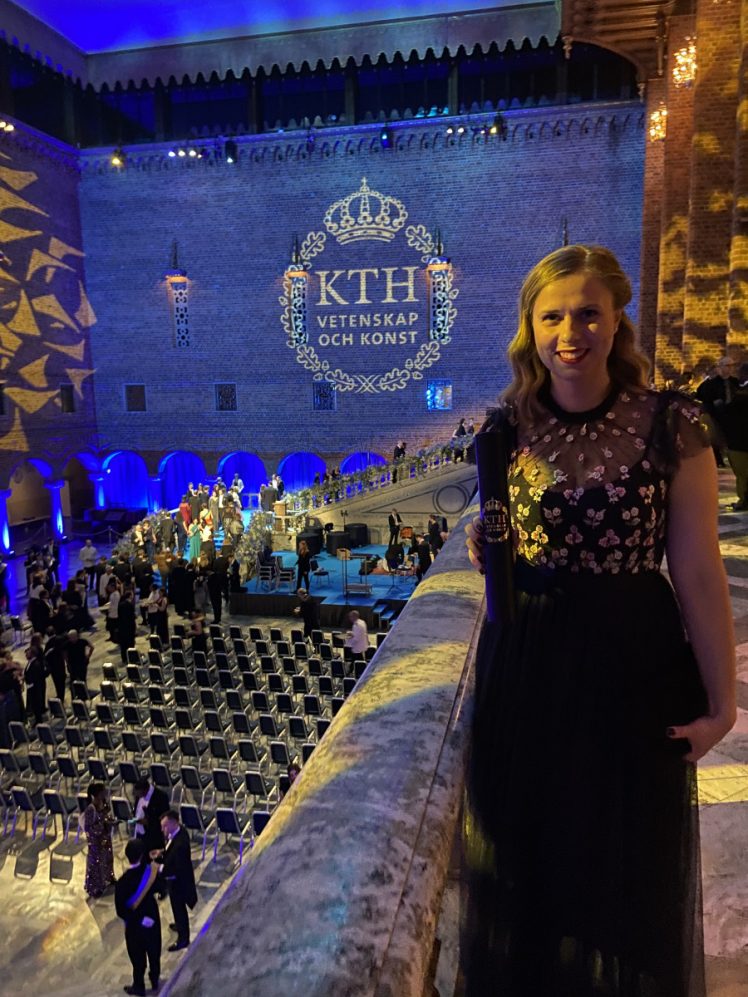Authored by Gauri Salunkhe, based on her experiences during her 4.5 month field work in Fiji for her Master’s thesis project. This is part 2 of a two-part article that delves into the local indigenous knowledge and gender perspectives. Part 1 introduced the community-managed marine conservation work as a nature-based solution in Naidiri village, Fiji.
“There are no more suitable people on Earth to be the custodians of the oceans than those for whom the sea is home.”
– Epeli Hau’ofa, a prominent Fijian-Tongan writer and anthropologist, in his essay, “Our Sea of Islands”. He has written extensively about the deep connection Pacific Islanders have with the ocean.
Local indigenous knowledge and methods to overcome challenges of implementing nature-based solutions in marine and coastal ecosystems
In Naidiri, a coastal village in Fiji deeply connected to the ocean, local traditions, knowledge, and customs have become powerful tools for addressing the complexities of managing marine and coastal resources. While Nature-based Solutions (NbS) for marine and coastal ecosystems often face implementation challenges, Naidiri has drawn on its traditions and ancestral knowledge to address these in unique ways.
The first hurdle is understanding how marine ecosystems provide essential services and how changes in ecosystem health impact these services. The community’s understanding of marine ecosystems, such as how they sustain food supply, comes from generations of lived experience, including knowledge of tides, marine species, and seasonal patterns. While scientists may lack long-term data, Naidiri’s people rely on bioclimatic markers and shared community memory to track environmental changes over time. The place-based knowledge, gathered over years of experience and intimate interaction with the ocean, is critical to understanding how the reef supports them. This cultural resilience and adaptive approach have allowed them to respond to changes and adapt their practices to maintain a healthy environment.
The second challenge relates to the governance and property rights of marine and coastal areas that can complicate marine resource management. In Fiji, traditional governance supports resource management in villages like Naidiri. The qoliqoli (traditional fishing ground) is overseen by the turaga (high chief) who approved Naidiri’s MPA when it was established in 2009. Today, the Naidiri Youth Group and Yaubula (Environmental) Management Team lead environmental efforts under this governance such as coral and mangrove restoration, beach cleanups, and crown-of-thorns starfish removal. Guided by Manoa, Naidiri’s environmental officer, these teams coordinate efforts in harmony with traditional governance, where the collective effort known as caka caka vata[1] (working together for a common purpose) plays a pivotal role in the MPA’s success.
The third challenge involves raising public awareness of marine ecosystems and NbS. Unlike urban communities, where the marine environment might feel distant, the people of Naidiri live right by the ocean, which is integral to their daily existence. Their understanding of Vanua[2], a concept that links their lives to both land and sea, deepens their responsibility to care for the environment. The community members have witnessed firsthand the impact of environmental shifts, recalling how declining fish stocks in the early 2000s spurred them to establish the MPA. Although they may not use the term “Nature-based Solutions,” the people of Naidiri have long practiced forms of environmental stewardship that align with NbS principles. The creation of a tabu, or protected area, is an ancestral tradition that has safeguarded marine and terrestrial resources for generations and ultimately inspired Naidiri’s MPA. By passing down these practices, they instill a sense of ocean stewardship in younger generations, equipping them to become future guardians of the MPA.
Through their efforts, the people of Naidiri have cultivated a unique blend of indigenous knowledge and scientific awareness, empowering both adults and youth to lead the way in sustainable marine management. Their story exemplifies how deeply rooted traditions can adapt to modern challenges, ensuring that our treasured marine environment continues to support and nourish the community.

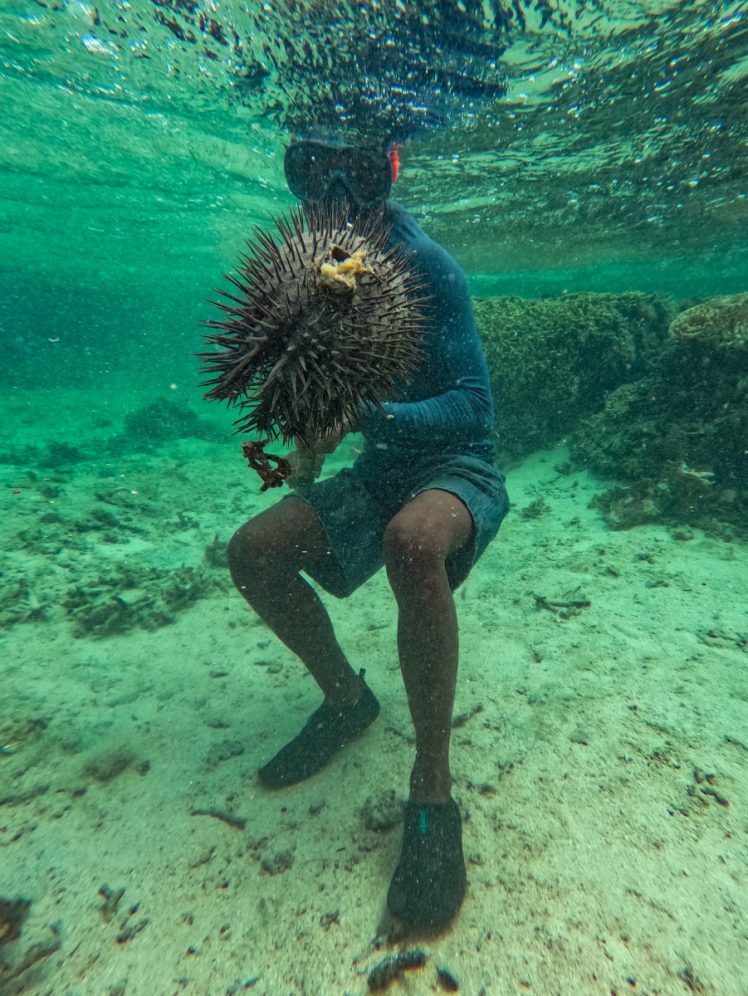
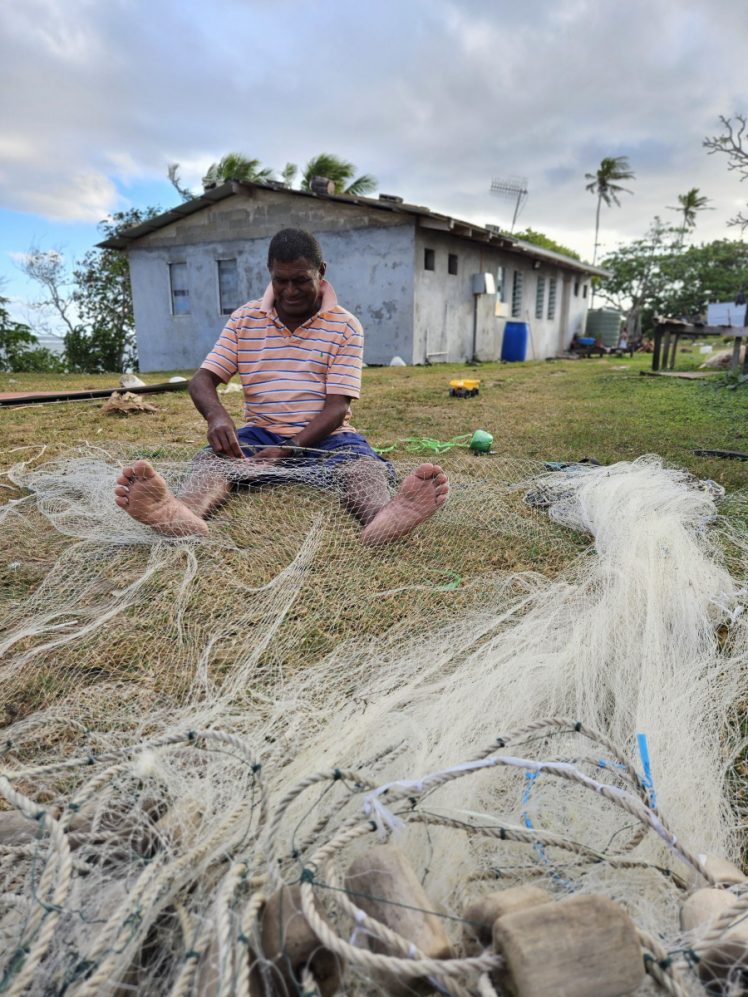
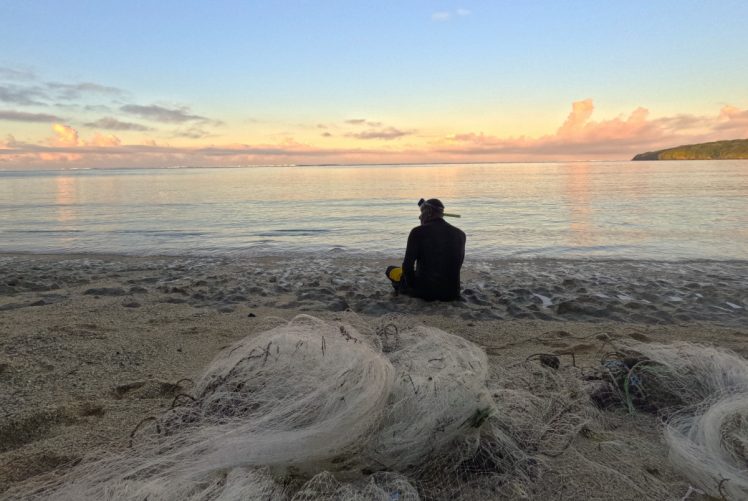
Women’s role in the establishment and management of Marine Protected Areas
Naidiri’s MPA was established with good intentions, aiming to replenish fish stocks for future generations and improve the community’s livelihood. Yet, early on, the perspectives of Naidiri’s women were overlooked, and this exclusion led to unexpected challenges. While the MPA ultimately became a valuable resource, the initial lack of inclusion caused women disproportionate challenges and delayed acceptance. In many coastal communities, women play vital roles in family sustenance, child socialisation, and the day-to-day management of resources. Research highlights how women, who often fish, sell, and process resources, pass down valuable skills and attitudes to their children, shaping future generations’ respect for sustainable practices. Including women in marine management is therefore not only a matter of representation but a key to fostering long-term resource stewardship.
When the MPA in Naidiri was first proposed, some women opposed it as the designated area for the MPA was a usual spot for women to catch fish, octopus, and seashells which are critical for their family’s meals and income. Establishing an MPA there meant that they would have to walk further from home to fish, increasing the time spent on fishing, and reducing time for other responsibilities. Frustrated, a few women cut the plastic-bottle buoys marking the MPA boundaries, a silent protest against the decision. Although the MPA moved forward with approval from the community’s turaga (high chief), the women’s concerns revealed a gap in the planning process: the importance of listening to all voices in a community rooted in tradition and mutual responsibility.
Reflecting on the MPA’s journey, Naidiri’s community recognises how things could have been done differently. Future projects in similar villages could greatly benefit from early and open discussions with women. Naidiri’s youth are now committed to raising awareness about marine conservation before setting up an MPA, such as explaining how it would address issues like declining fish stocks to ensure a sustainable future, to gain early support from women and the rest of the community. Additionally, having female representatives in outreach sessions could create a sense of solidarity and trust among women, encouraging them to feel engaged from the beginning.
Recently, Naidiri’s leaders have taken a new approach. When a temporary MPA (tabu) was set up in 2021, the women were included in the planning discussions. They requested permission to continue octopus fishing within the temporary tabu, as octopus is an essential part of their livelihood. The accommodation of their request marked a turning point of Naidiri’s MPA management, where women’s voices were valued in resource management decisions. By integrating the experiences and insights of women, the village has laid a foundation for a more inclusive approach to conservation, ensuring that future marine projects are embraced by all and reflect the community’s collective strength. Furthermore, octopus are a predator of giant clams that are bred in the MPA. When the women catch these octopus, it becomes a community solution to protect the giant clams. Naidiri’s story shows how, by working together, they can protect their precious marine resources in a way that uplifts everyone.
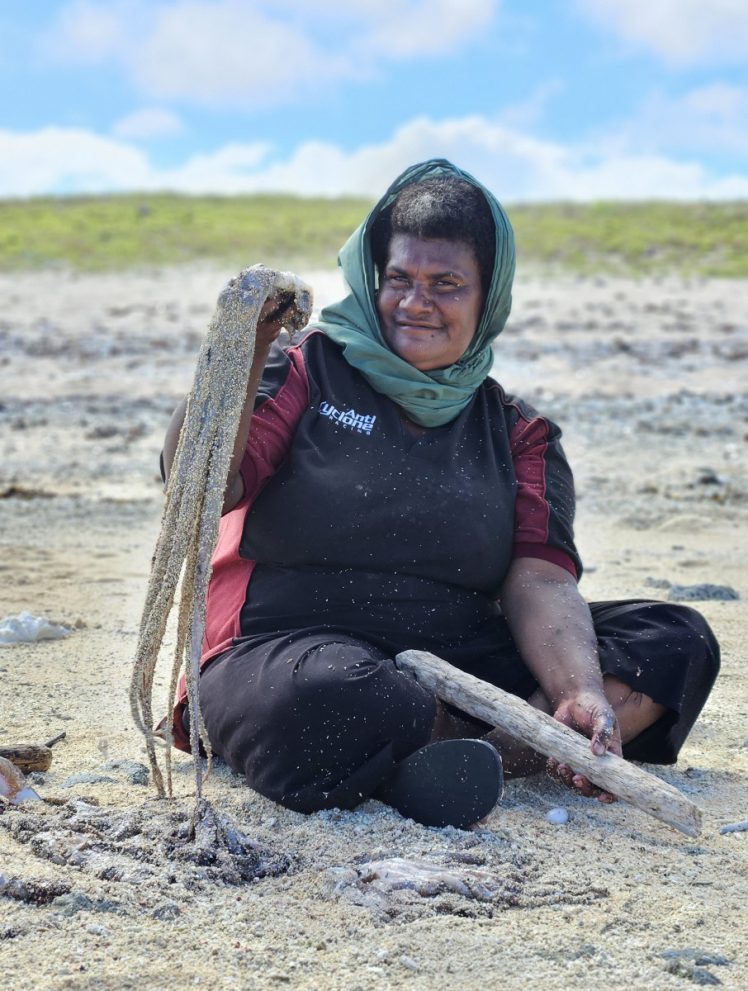
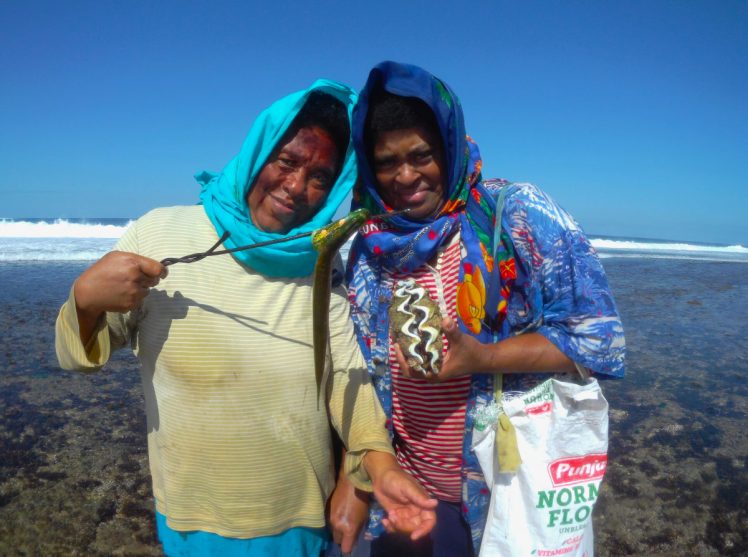
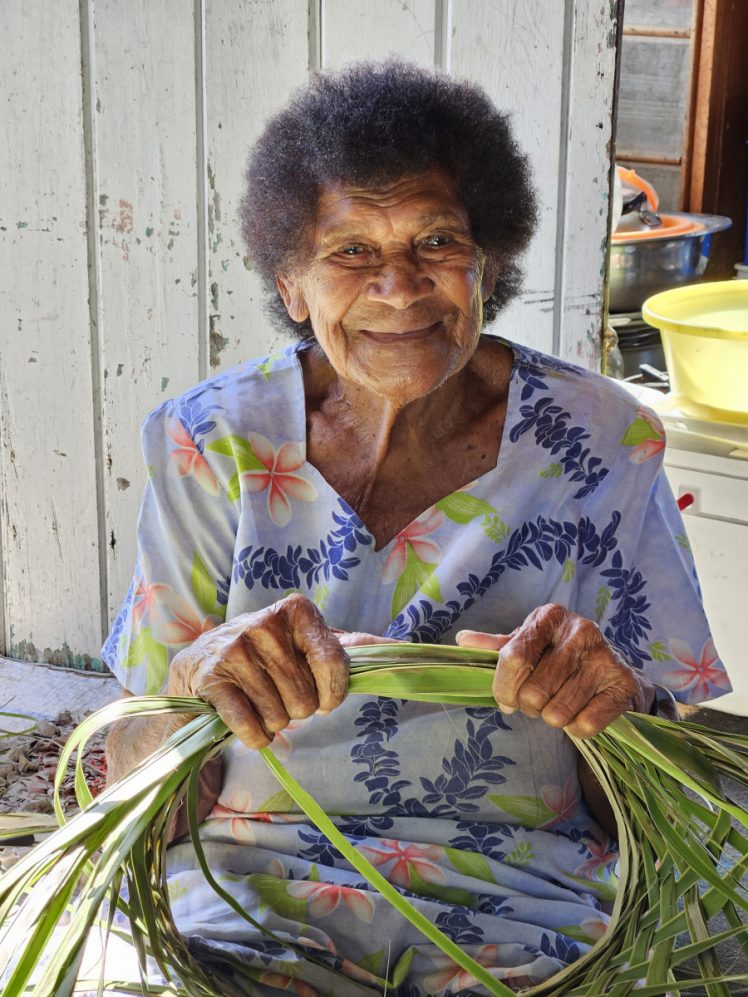
Building Community Ownership and Capacity through Participatory Research Methods
The study in Naidiri took shape through both ethnographic methods and participatory action research, aligning with the Vanua Research Framework proposed by Nabobo-Baba in 2008. This research framework is deeply embedded in Fijian values, language, and social structures, giving voice to the Fijian ways of knowing and honouring cultural connections like the Vanua (tribe), yavusa (clan), mataqali (sub-clan), and tokatoka (extended family). Unlike traditional research, which can feel intrusive, this framework invited Naidiri’s people into every step of the process, ensuring that they could directly shape how the research developed and how its findings would be shared. The Participatory Action Research (PAR) approach strengthened this study by involving Naidiri community members in practical, hands-on activities that centred on their own knowledge and skills. This method aimed not just to gather data but to leave a lasting positive impact on the community, giving them tools for future challenges.
In one instance, members of the Naidiri women’s group approached me with a heartfelt request: they wanted to see for themselves the MPA that had become a draw for international tourists, researchers, and students. This area carried mixed emotions for many of them. Once their fishing grounds, it was now off-limits, and some women had even resisted its establishment years ago. Over two days, I led 15 women on a snorkelling tour, guiding them through vibrant corals, schools of colourful fish, giant clams, and rare species that now thrived in the protected zone. After their snorkelling tour, I sat with the women for interviews, keen to hear their reflections. The women’s reactions were overwhelmingly positive. For most, this was the first time they saw what had become of the waters where they once cast their nets. They were amazed at the dense corals and the diversity of fish, which they noted had been sparse before the MPA’s establishment in the late 1990s and early 2000s. Their perspectives shifted, and a new sense of ownership toward the MPA emerged; they now saw it as something precious, something they had helped to create. Many expressed a desire to contribute actively to its care and to explore tourism activities around it, envisioning new roles for themselves and potential income opportunities in guiding and hosting visitors. The experience deepened their connection to the MPA and stirred a sense of pride and responsibility.

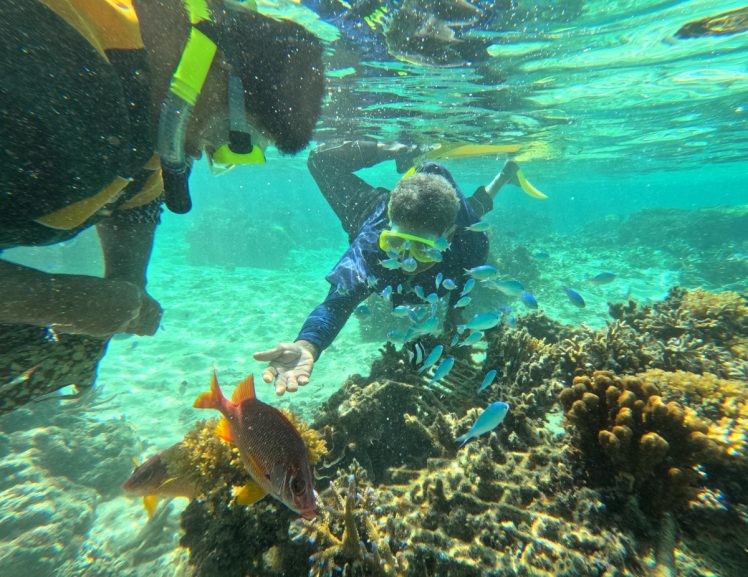

Another significant moment came when the environmental officer of Naidiri, Manoa, volunteered to help with transect samplings to collect quantitative data of coral cover and fish populations. His interest in learning scientific data collection methods turned into an impromptu training session, as I showed him the techniques involved in transect sampling and guiding him through coral data collection on the A-frames, sparking his enthusiasm for monitoring the MPA. With this newfound knowledge, Naidiri could build a community of local researchers who could contribute to future projects, giving Naidiri a voice in the research conducted within their waters.
The data gathered could be shared with the community, fostering a deeper sense of ownership. Instead of just being represented, the community could actively participate and represent themselves, sharing insights from their data as co-authors or co-presenters in wider discussions. Additionally, indigenous Fijians bring invaluable ecological knowledge of significant reef fish and marine habitats, offering insights crucial for managing these resources sustainably. Collecting data locally allows them to preserve this knowledge in the absence of formal historical records. With these skills, Naidiri’s community members could potentially be hired by other research projects or government bodies looking to study and replicate similar conservation efforts. Not only would this bring economic opportunities, but it could also empower them to present findings to other villages and schools, inspiring similar community-managed MPAs. When these ideas come from fellow indigenous communities, they often resonate more deeply, grounded in shared cultural and spiritual understandings. By sharing their experiences, Naidiri’s community could inspire others to embrace sustainable fisheries and climate resilience, building a network of conservation-minded villages.
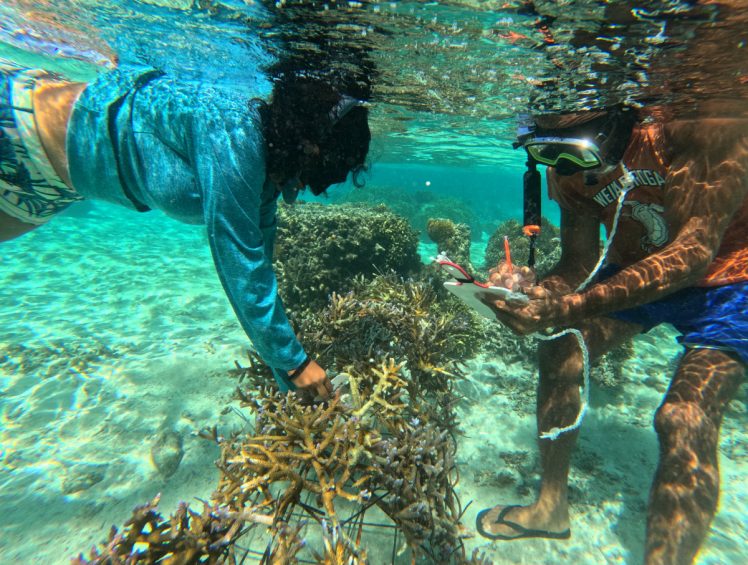
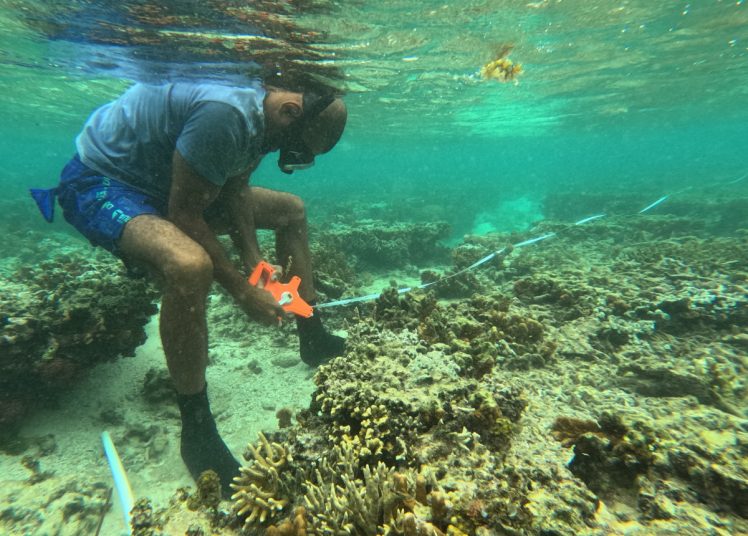
Lastly, the local youth group sought my guidance to improve their snorkelling tourism initiative and build skills as tour guides. They had wanted to receive formal tour-guide training but faced financial barriers. Eager to support their ambition, I collaborated with Tourism Fiji to create a workshop aimed at building the youth’s skills and confidence. Using role-playing, storytelling, and talanoa[3] sessions, the workshop allowed the young people to practice guiding, share feedback, and connect with each other over their goals. Through discussions with the community’s elders, the youth gathered insights that would enrich their tours and help them share a more authentic narrative with visitors. Together, they brainstormed key information about the village and the MPA that all guides could use, ensuring consistency and accuracy during tours. The role-playing exercises allowed the youth to practice presenting the information, gaining confidence and improving their performance. As they honed their skills, they also understood how to elevate the quality of their tours, which would enable them to charge higher fees, providing a sustainable income for the youth.
Ultimately, these participatory activities built the community’s capacity by developing new skills, enhancing their knowledge, and fostering a deeper sense of ownership over the MPA. A strong sense of ownership is essential for the MPA’s sustainability. When the community genuinely feels they own and care for such initiatives, they are far more likely to maintain and champion them in the long run, a foundation for success in any community-based solution. Building capacity is crucial, as innovative solutions are required to tackle modern challenges that are unfamiliar to traditional systems and must be learned and mastered rapidly.
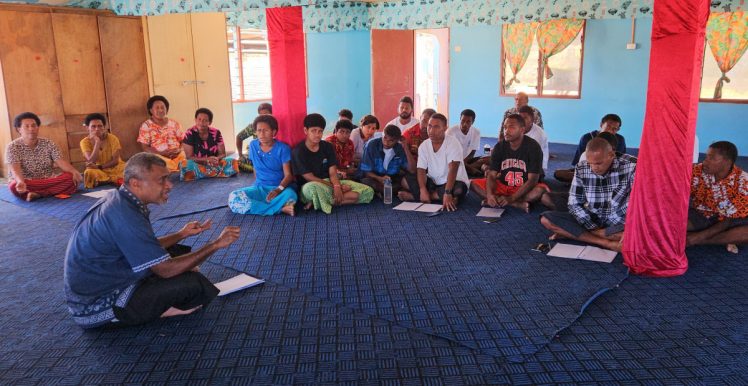
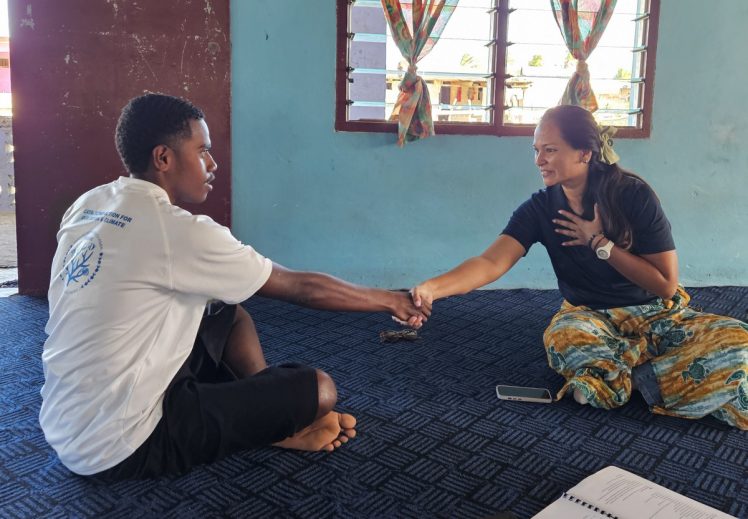
Bridging Knowledge Systems: Embracing Indigenous Knowledge to develop Nature-Based Solutions for Resilient Marine Ecosystems
The degradation of marine ecosystems, driven by climate change and human activities, poses serious risks to the health and well-being of coastal communities. Communities in the Pacific Small Island Developing States (PSIDS) are particularly vulnerable. This reality highlights the urgent need for innovative and inclusive solutions for marine and coastal ecosystems, such as Nature-based Solutions (NbS). However, while NbS have found some success on land, challenges remain in implementing them in marine and coastal environments. A key barrier is the integration of indigenous knowledge, which is essential for developing solutions that are both locally relevant and capable of enhancing the resilience of marine ecosystems.
Indigenous knowledge is often viewed as supplementary to Western science, but it holds the potential to be a vital part of a more holistic approach to environmental management. For this integration to succeed, a shift is needed – one that acknowledges indigenous knowledge as fundamental to developing more effective and equitable conservation strategies. By embracing indigenous peoples’ rights, self-determination, and unique contributions, we can work toward a just and resilient future in environmental management.
This study focused on a locally-managed MPA in Naidiri Village, Fiji, as a case study of NbS for marine ecosystems. The Naidiri community has embraced its indigenous knowledge, values, and practices such as bula vakavanua (traditional indigenous way of life in villages that encompasses the interconnectedness of land, sea, and people, and emphasises the importance of maintaining a harmonious relationship with nature), caka caka vata (working together to achieve a common goal), and tabu (traditional bans) and combined these with modern conservation methods such as coral restoration. Fifteen years after the establishment of the MPA, this approach has reduced socio-ecological vulnerabilities and increased adaptive capacities. However, there are still areas for improvement, particularly in ensuring that women’s voices are included in the decision-making and management of NbS.
The success of Naidiri’s MPA has led to the recognition that research priorities must evolve to integrate indigenous knowledge, methods, and experiences alongside scientific and economic perspectives. Moving forward, it is crucial to bridge the gap between scientific and indigenous knowledge, allowing local indigenous knowledge to lead the way, supported by Western scientific understanding. This approach will be vital for ensuring the health and sustainability of our marine resources.

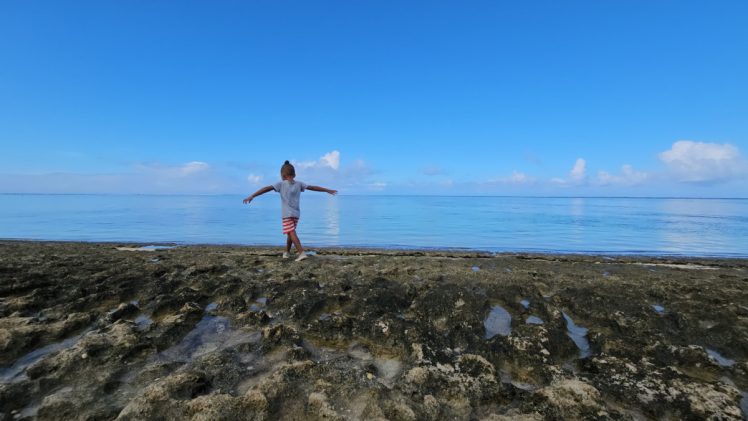
Acknowledgements
I would like to thank my Master’s thesis supervisor, Zahra Kalantari, for her unwavering support of this project, insightful feedback and guidance, inspiring ideas, and her confidence in my ability to see it through from the very beginning. I would also like to thank my co-supervisor, Austin Bowden-Kerby, for providing me the opportunity to work in Naidiri. His vast knowledge and experience in corals and coral restoration, along with his understanding of working in Fiji, have been a tremendous resource. A big kudos to Manoa and Charly for their support in data collection, the endless joy and laughter from the ulu levus, and their shared passion for marine conservation made the work so much more enjoyable.
I would like to express my deepest appreciation to the community of Naidiri for their trust and willingness to share their invaluable knowledge and experiences. I am profoundly grateful for the love and acceptance they showed me, treating me as part of the community, making my stay in Naidiri unforgettable. And I extend my heartfelt thanks to everyone else who supported and encouraged me with the true Bula spirit of Fiji. Lastly, I want to express my deep appreciation for the marine life in Naidiri’s MPA. The pristine and beautiful ecosystems revealed their richness and various dimensions every time we snorkelled. I hope this project plays a small role in helping to preserve them for the future.
Links to learn more about this project
Naidiri Marine Biodiversity Park Website
“Reefs of Hope” United Nations (UN) Ocean Decade Action
Naidiri Marine Biodiversity Park Instagram
Naidiri Marine Biodiversity Park Facebook
Naidiri Marine Biodiversity Park YouTube
Naidiri Marine Biodiversity Park LinkedIn
[1] Caka caka vata is a strong part of indigenous Fijian culture which has allowed them to develop group consciousness and a way of working together harmoniously
[2] Vanua refers to the land, sea, and people that one is traditionally connected to; the overall socio-biological environment
[3] “Talanoa in the Fijian cultural context refers to the process where two or more people talk together or when one person is the storyteller and has an audience who largely are listeners… Talanoa is an appropriate approach to Fijian research and it embodies Fijian protocol in the sharing of information.” (Nabobo-baba, 2008) Talanoa can be either formal or informal, depending on who you are speaking to, the context, etc.

